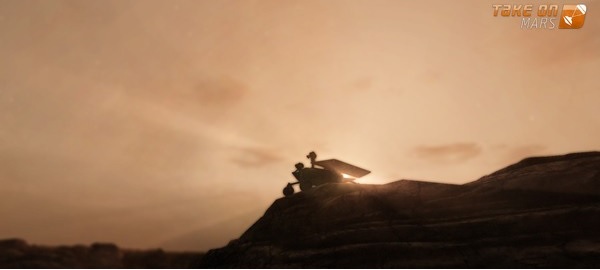Bohemia has released the debut gameplay trailer for its next installment in the Take On simulation video game series, Take On Mars. Placing you in the seat of a Rover Operator, players will be able to control fully simulated, customizable mobile Rovers and stationary Landers, while they complete various scientific objectives. Take On Mars will launch for 12.99 USD/9.99 EUR/ 8.99 GBP on August 1st as an Early Access title on Steam.
Martin Melicharek, Project Lead on Take On Mars, said:
“In an attempt to satisfy everyone’s curiosity (pun intended), we are proud to bring Take On Mars to Steam’s Early Access catalogue on the 1st of August. After this initial launch, we hope to receive feedback and suggestions from players, and work together to create the most dynamic exploration sim game – driven by everyone’s passion for exploration and interest in extra-terrestrial bodies, such as Mars… Better said, especially Mars!”
Featuring a realistic terrain, based on actual satellite data from locations such as Victoria Crater, Take On Mars includes 3 game modes: Space Program, Scenarios, and Editor. In Space Program, players operate from the perspective of a science-driven Space Agency, while Scenarios head straight to Mars for individual missions. The game also provides players with a powerful 3D scenario editor and supports modding. Last but not least, the Rovers make use of a dynamic destruction system, meaning you can break off things like cameras, robotic arms and wheels. However, operators are advised to consider their budget and secure additional funding by completing missions and tasks.
Enjoy!

John is the founder and Editor in Chief at DSOGaming. He is a PC gaming fan and highly supports the modding and indie communities. Before creating DSOGaming, John worked on numerous gaming websites. While he is a die-hard PC gamer, his gaming roots can be found on consoles. John loved – and still does – the 16-bit consoles, and considers SNES to be one of the best consoles. Still, the PC platform won him over consoles. That was mainly due to 3DFX and its iconic dedicated 3D accelerator graphics card, Voodoo 2. John has also written a higher degree thesis on the “The Evolution of PC graphics cards.”
Contact: Email

